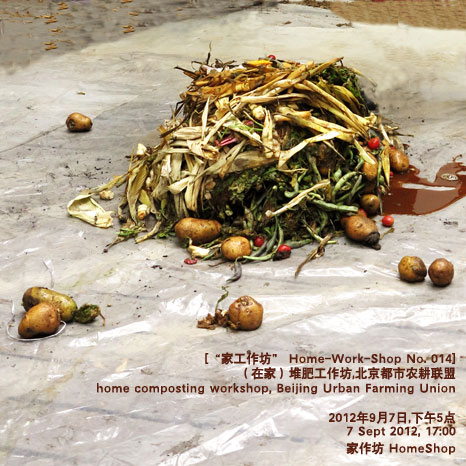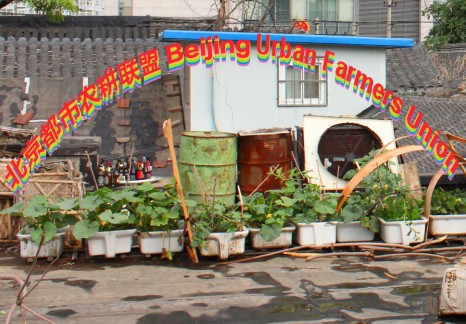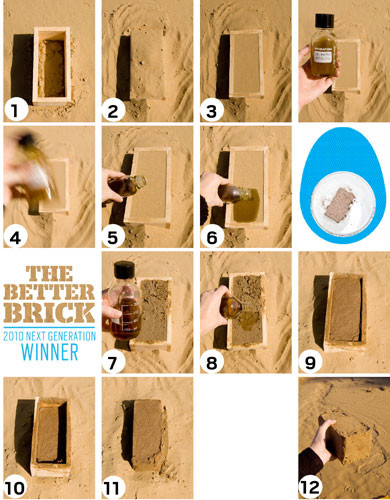
日期/时间 date__ 9月7日周日,下午5点 | Friday, 7 September, 17:00
地点 location__ 家作坊 HomeShop
(在家)堆肥工作坊,北京都市农耕联盟
第一次北京都市农耕联盟的活动反响不错,大家都表示要继续开展一系列的工作坊和会议来继续学习如何在城市内种植。第一步当然是土壤,但是如何获得土壤和有机肥料在城市里一直是个难题;而同时,周围的填埋场63%填埋的却是厨余垃圾,在污染环境。所以,厨余堆肥毫无疑问是都市农耕的优先行动之首。
2012年9月7日下午5点,也就是本周五下午5点,我们很荣幸的邀请到一位很特别的专家来分享户用厨余堆肥技术,她是来自日本旅居柏林的艺术家、园艺师Ayumi Matsuzaka。在过去几年中,Ayumi Matsuzaka在全世界推介她在食物,废弃物及自然循环方面的知识。最近她也参加了在伊比利亚当代艺术中心的“改变的力量!美学与可持续性的探索”系列活动。如果你错过了她在伊比利亚当代艺术中心的活动,人生将在家作坊给你第二次机会,不容再次错过哦!
我们将会了解有关在柏林的都市农耕运动,重点学习这种适用于公寓、阳台或者楼顶的小规模无臭味的堆肥方法。如果你有一个有盖的桶或者箱子(不超过40L),你可以带来参加这个工作坊,之后就可以带着属于你的“启动工具包”回家!
请提前注册,我们好准备相应的材料。谢谢!
Beijing Urban Farming Union: home composting workshop
The first Beijing Urban Farming Union event has met with great interest and we vowed to continue a series of workshops and meetings to learn about growing food in the city. It all begins with the soil, but accessing soil and organic nutrients has proven to be a problem in the city; meanwhile, the dumpsites are still filled with 63% kitchen waste, polluting the environment. So practical solutions for home composting are at the top of the priority list.
This Friday (7 September 2012) at 5pm, we will have the pleasure to learn a proven home composting method from a very distinguished specialist. Ayumi Matsuzaka is a japanese artist and gardener living in Berlin; she has travelled the world spreading her knowledge on food, waste, and natural cycles for several years; in Beijing she also takes part of the sustainability/art series “Examples to Follow” at Iberia Art center. For those who couldn’t meet her there, life gives you a second chance at HomeShop. Don’t miss it!
We will learn about the urban gardening movement in Berlin and focus on a small-scale non-smelly composting method for your apartment/balcony/rooftop. If you have a used bucket or box with a lid (up to 40 liters), you can bring it to the workshop and take home your starter kit.
Please register in advance for us to prepare the materials.
价格 cost__ 20元
报名请联系 please rsvp__ lianxi@homeshop.org.cn

 时间 posted on: 5 September 2012 |
时间 posted on: 5 September 2012 |  发布者 author:
发布者 author: 
 分类 filed under:
分类 filed under: 
